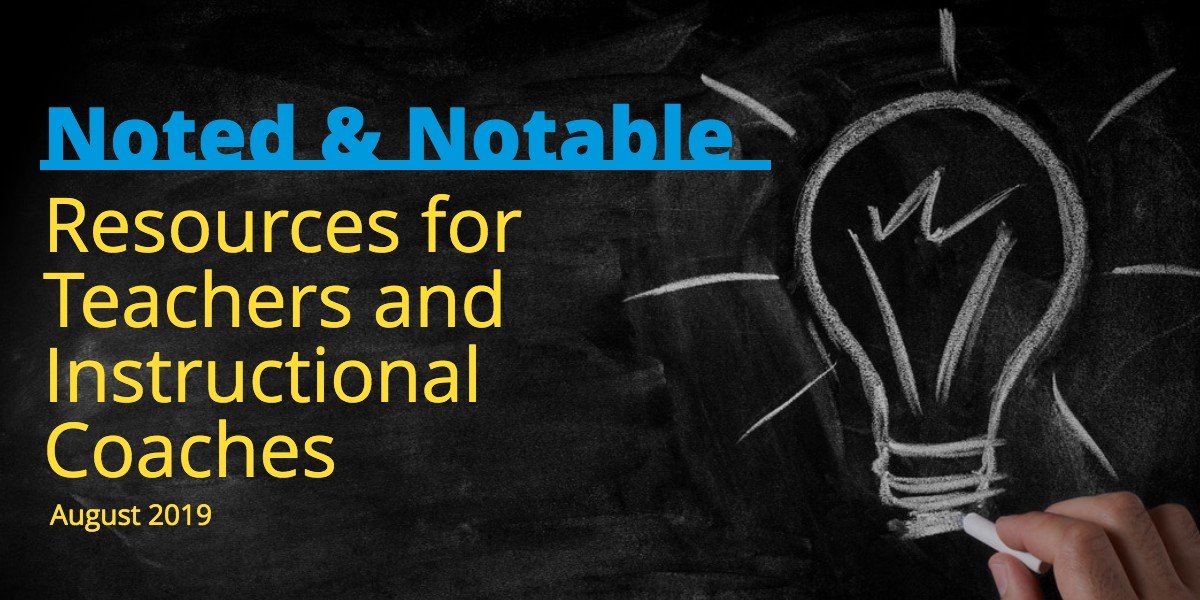Resources for Teachers & Instructional Coaches – August 2019

Colored pencils, dry erase markers, tissues… here are a few more things to add to your back-to-school (reading) list if you’re someone who supports teacher professional learning.
When struggling as a teacher, it’s tempting to hide in your room. However, helpful solutions may be right down the hall.
Don’t feel alone, there are many common mistakes among first-time educators. As you prepare for your first day of class, consider how you can avoid some of these most common errors.
Ultimately, educators at every level make mistakes. While there may not be a “Ctrl+Z” function for the classroom, each morning represents a chance to start fresh, make amends, and try again. Children are resilient and incredibly forgiving. Give your students your best, and you will be amazed at what you can accomplish year after year, imperfections and all.
Read more on Education Week: 9 Mistakes New Teachers Make
New instructional coach? Build relationships and stock up on chocolate
Often times, teachers transitioning to the role of instructional coach struggle with the loss of that productive feeling that comes with seeing student growth. However, building relationships with their teachers is the first step needed to impact teacher decisions and ultimately witness that student growth they are looking for.
We can’t get anywhere with teachers unless they trust us and know we’re down-to-earth humans whose true goal is to support them and their students.
Highlight these positive moments for those teachers via face-to-face conversations, written notes, or emails—or, even better, emails on which you copy administrators. You might even make a goal for yourself to send two or three positive emails each week.
Read more on Edutopia: 5 Relationship-Building Tips for Instructional Coaches
Colleges will compete for students at a competency level, not a degree level
Microcredentials are increasingly finding a place in college curriculum’s as well as professional development models. They give students a way to demonstrate what they’ve mastered and offer professionals an opportunity for continued development.
For students and workers, the ability to showcase discrete skills can help them land their first or their fifth jobs. After all, although a college degree’s importance tends to be overshadowed by work experience, credentials can show how a seasoned professional has kept their knowledge current.
Read more on Education Dive: What’s In a Microcredential

